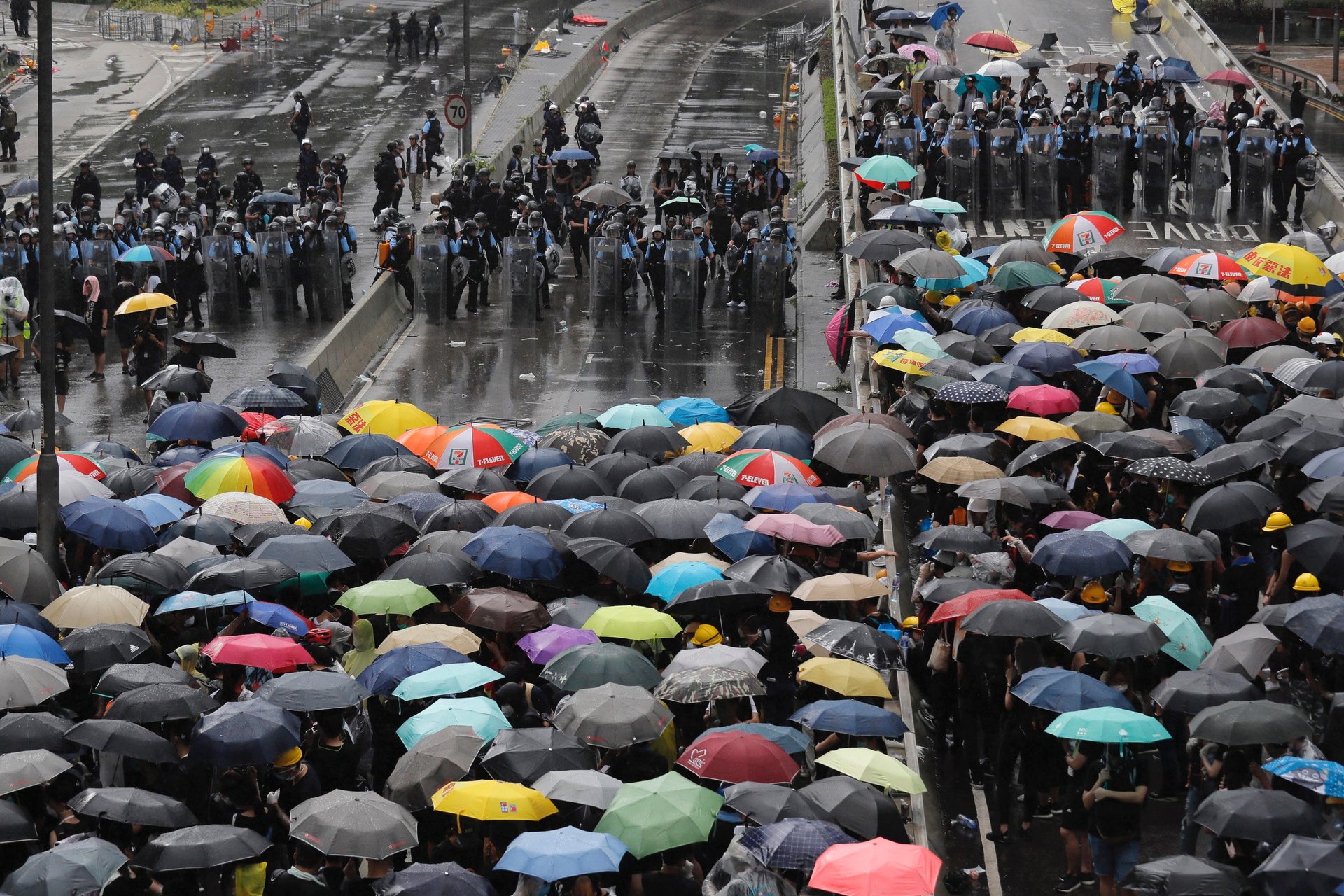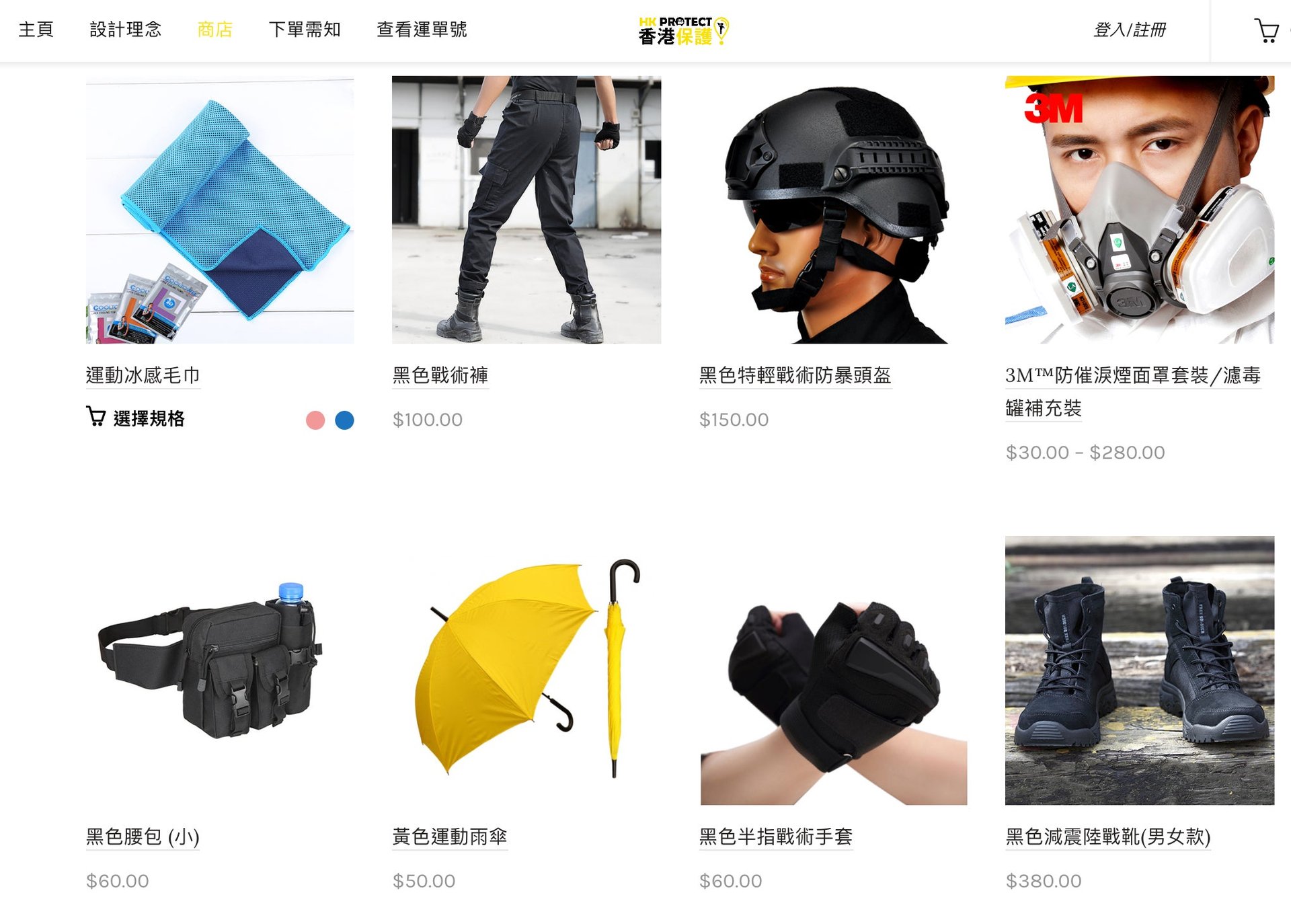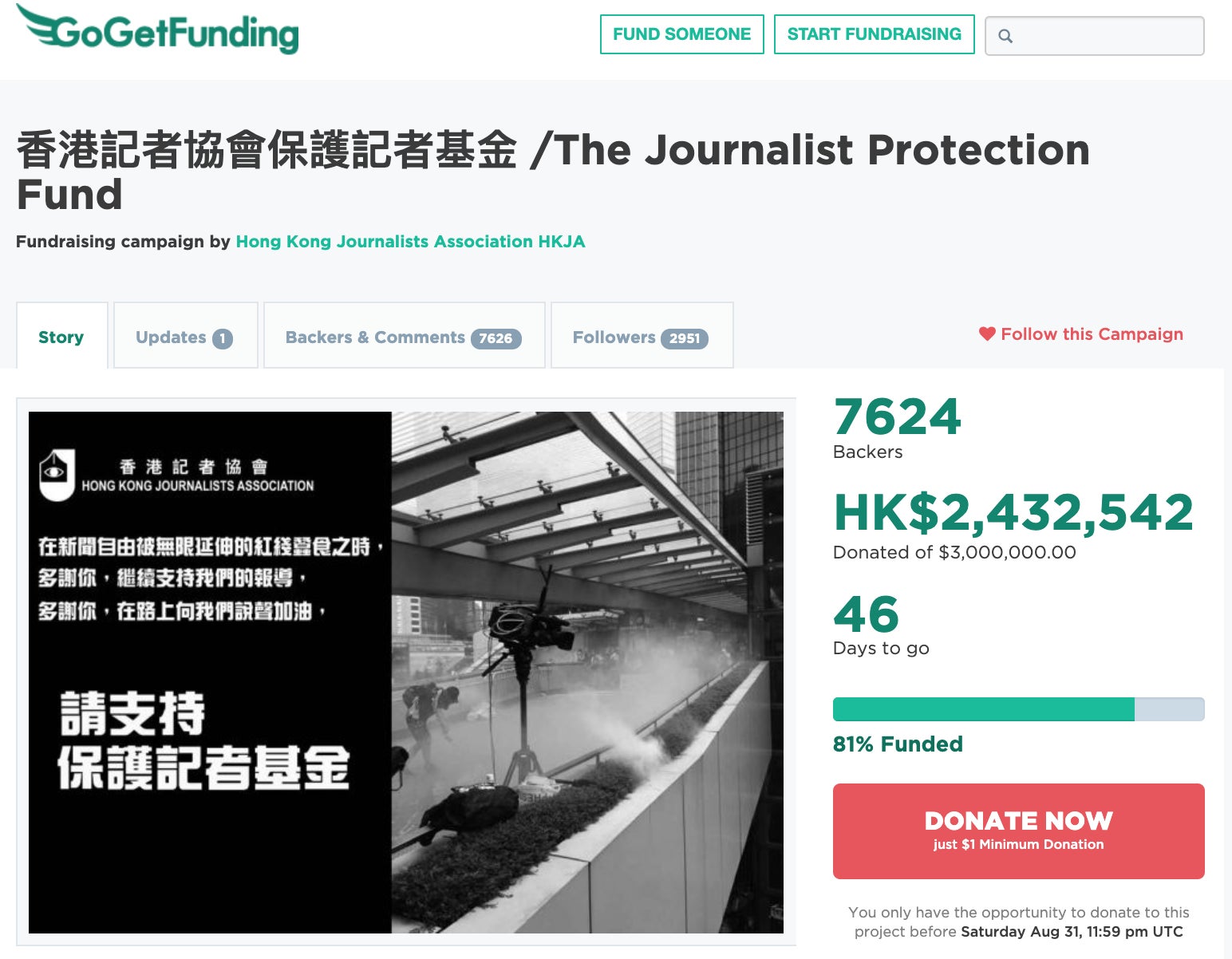Hong Kong’s entrepreneurial protesters are crowdfunding everything from doctors to legal fees
As Hong Kong enters its seventh week of protests, all signs are pointing to a long summer of demonstrations ahead. They’ll be sustained not only by the protesters’ unflagging energy, but also by the large amounts of money that people are donating to keep the movement going.


As Hong Kong enters its seventh week of protests, all signs are pointing to a long summer of demonstrations ahead. They’ll be sustained not only by the protesters’ unflagging energy, but also by the large amounts of money that people are donating to keep the movement going.
Across the city, all sorts of grassroots initiatives have popped up to support the protests in different ways—including raising funds for lawyers to represent arrested protesters and to pay medical bills (link in Chinese), or to fund research and publicity—with people who may previously never have attended a protest tapping into their respective fields of expertise to help in their own small ways.
“There are a lot of creative ways to support the movement,” said L., a co-founder of HKProtect, a website selling protective gear to protesters, who didn’t want to be identified. “Everyone is using their profession to contribute,” he said, noting that architects have drawn up floor plans of protest sites with escape routes clearly marked, and graphic designers have created countless posters.
The protests began in opposition to a reviled extradition bill that would have made it possible to extradite suspects to mainland China to face trial. After the bill was suspended on June 15, they have broadened to encompass growing fears over Hong Kong’s autonomy from China, and longstanding grievances over the lack of electoral democracy.
L. and four other friends, all of whom work full-time jobs, decided to launch HKProtect after seeing demonstrators endure tear gas, rubber bullets, and batons from police during protests on June 12—the day lawmakers were supposed to meet to move the bill forward. They poured in HK$100,000 ($12,800) from their own pockets, and got the business up and running within two weeks. While they sell the goods at a small markup to cover storage costs, they have since broken even and plan on donating gear to upcoming protests, L. said, adding that all their products are defensive in nature: “We don’t support violence, but we want to provide the necessary equipment so that protesters can get out, escape, and stay safe.”

A recent post on a local online forum captured the spirit animating the donations: “There is no lawsuit that cannot be won, only lawyers who cannot be afforded. There is no injury that cannot be cured, only medical fees that cannot be afforded,” it read in part (link in Chinese), urging people to give. “What Hong Kongers have the most of is money, and money can buy justice.”
Already, several crowdfunding campaigns launched on sites like GoGetFunding since the wave of protests began in early June have blown past records within days, sometimes within mere hours. A fund set up soon after the June 12 demonstrations raised more than HK$1.2 million ($153,000) within days for medical, legal, and psychological assistance to protesters.
Crowdfunded money is going toward covering medical fees for injured protesters as some have come to distrust the city’s public hospitals after it was revealed that a loophole in the government-run Hospital Authority’s data management system could have allowed police to access patient information. Police arrested several protesters as they were in hospital receiving medical treatment, raising suspicions that the Hospital Authority was leaking data to law enforcement officers—an accusation that the authority has denied. Still, in a bid to safeguard injured protesters’ confidentiality, groups were set up to help protesters sidestep the public medical system by directing them to private clinics.
A crowdfunding campaign that launched in late June to raise money to take out full-page advertisements in international newspapers around the world ahead of the G20 summit amassed HK$5.5 million in a single morning, and ads were eventually placed in 19 publications around the world, including the New York Times, the Washington Post, and the Guardian.
“Hongkongers don’t pull any punches when it comes to money,” said Crystal Tong, a 25-year-old student who donated to the advertising campaign.
Other crowdfunding campaigns established in recent weeks include one from the Hong Kong Journalists Association in support of press freedom, amid reports of police misconduct against journalists during the recent protests. It has raised over HK$2.4 million as of today (July 17), just two days after its launch.

Another, set up by a nonprofit organization co-founded by former top Hong Kong official Anson Chan, hopes to raise HK$1 million to fund a study of the extradition bill controversy. Separately, the newly established Public Opinion Research Institute, which conducts regular polls on a range of issues like democracy, identity, and approval ratings of public officials, has raised more than HK$4.1 million since beginning operations in May.
“We talk about climbing mountains together, and I want to do my part,” said S., another co-founder of HKProtect, the online store selling protective gear. She describes herself as moderate and pro-democracy, and said that she rarely ever took part in marches. But seeing the police beat up young protesters on June 12 made her want to help, even if she wasn’t on the frontlines herself. “The power of the small and many, when collected together, is formidable.”